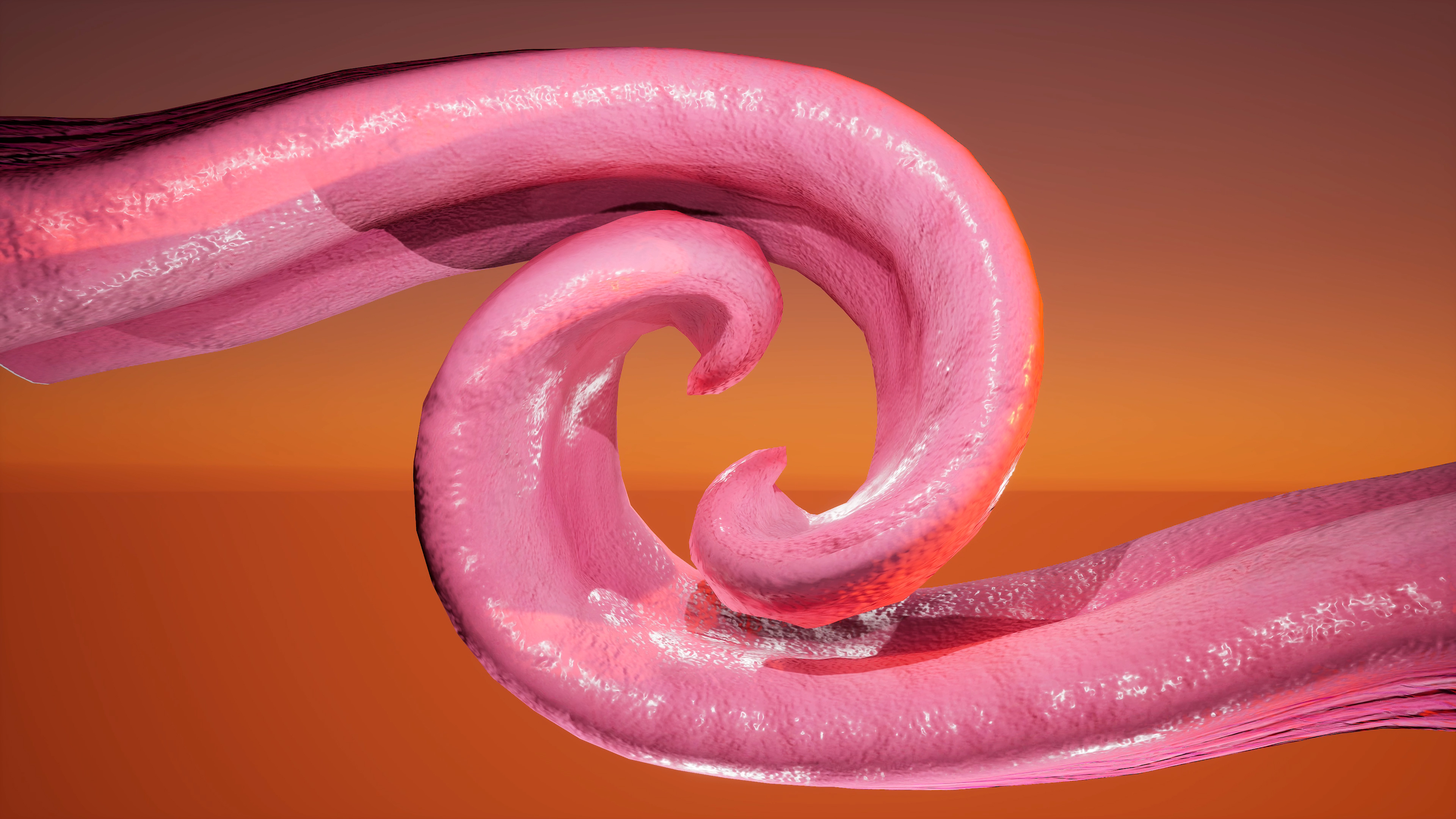Mother Tongue
video 9,41", 2025Mother Tongue is a poetic and speculative video workthat opens with the threshold of a solar eclipse - a brief moment where light and darkness fold into one another, marking a point of cosmological transformation. From this liminal space, serpent-like tongues emerge to lick the burning surface of the sun. Their gestures are erotic, futile, and ritualistic all at once - an intimate choreography directed at an overwhelming celestial force.
The tongues carry multiple meanings: they are sensorial organs, tools of language, and mythic figures. Their movements suggest both care and desperation, invoking a kind of ancient ritual whose purpose remains unclear. Are they soothing the sun or stoking its fire? As they spiral and converge, a shared, sensual language begins to form - not built on words, but on touch, rhythm, and desire. This mother tongue is a language of becoming, one that precedes logic and transcends control.
The work draws from Neolithic symbolism, particularly serpent motifs and solar cycles associated with earth-based, matriarchal cosmologies. Yet its gaze is not backwards. Instead, it offers a contemporary myth, where ancient symbols are recharged through the lens of techno-cultural unease and ecological precarity. The sun, both a giver and destroyer of life, becomes a volatile protagonist; the tongues, its ambiguous interlocutors.
In ‘Mother Tongue’, the erotic becomes a mode of knowledge - not one that explains or defines, but one that touches, dissolves, and reshapes. The video resists linear time, favoring instead a cyclical rhythm that mirrors the spiral, the ritual, the regenerative power of fire. There is no beginning or end - only a continuous attempt to speak with, and through, elemental forces.
Brigita Kasperaitė positions this work within a broader exploration of symbolic, geological, and digital entanglements. Here, the body and the cosmos communicate in an affective loop - where destruction and renewal are intertwined, and where meaning emerges not from clarity, but from sensation.
The tongues carry multiple meanings: they are sensorial organs, tools of language, and mythic figures. Their movements suggest both care and desperation, invoking a kind of ancient ritual whose purpose remains unclear. Are they soothing the sun or stoking its fire? As they spiral and converge, a shared, sensual language begins to form - not built on words, but on touch, rhythm, and desire. This mother tongue is a language of becoming, one that precedes logic and transcends control.
The work draws from Neolithic symbolism, particularly serpent motifs and solar cycles associated with earth-based, matriarchal cosmologies. Yet its gaze is not backwards. Instead, it offers a contemporary myth, where ancient symbols are recharged through the lens of techno-cultural unease and ecological precarity. The sun, both a giver and destroyer of life, becomes a volatile protagonist; the tongues, its ambiguous interlocutors.
In ‘Mother Tongue’, the erotic becomes a mode of knowledge - not one that explains or defines, but one that touches, dissolves, and reshapes. The video resists linear time, favoring instead a cyclical rhythm that mirrors the spiral, the ritual, the regenerative power of fire. There is no beginning or end - only a continuous attempt to speak with, and through, elemental forces.
Brigita Kasperaitė positions this work within a broader exploration of symbolic, geological, and digital entanglements. Here, the body and the cosmos communicate in an affective loop - where destruction and renewal are intertwined, and where meaning emerges not from clarity, but from sensation.
